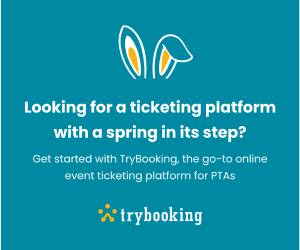Even before handling coins and notes became problematic, society was moving away from cash. Fewer parents at the school gates carried any loose change, and PTAs were already moving to online payment systems. The key for PTAs collecting money online is to be able to tally order information with payments easily. Basic online methods such as bank transfers are an economical way to accept payments, as long as you can keep track of everything. Dedicated sales and booking platforms collate information for you and can capture additional details such as a delivery address or year group.
Online payment providers
Bank transfers: There are no fees, and the money comes directly into the PTA’s account. Bank transfers work best if you don’t have too many transactions or different schemes running simultaneously.
It’s up to your supporters to remember to make the payments and the PTA must tally each to its corresponding order. As long as the payee’s surname matches that of their children, or parents add a reference, that’s relatively easy. A second account reserved solely for these kinds of payments can also help. The best thing about bank transfers it that they’re free, and almost all parents will be familiar with them.
PayPal: Supporters can pay you online through PayPal (if they have a PayPal account) or by debit or credit card. There are no set-up or monthly fees, but PayPal charges charities 1.4% + 20p per transaction to take payments online.
To get the charity rate, first set up a business account, then apply for charity status – although some PTAs have reported difficulties with this process. Eligible charities will be automatically enrolled in the PayPal Giving Fund, enabling them to raise funds through third parties such as eBay, Humble Bundle, GoFundMe and Facebook.
As with bank transfers, parents would need to add a note to state what they are paying for and their child’s name, if it’s not apparent. PayPal.com/uk/home
Sales and booking platforms
PTA Events: An all-in-one event management, e-ticketing, donation, communication and volunteer recruitment platform that’s free to use but charges 1.75% on all transactions. A premium plan is also available, offering a reduced transaction fee of 1% and extra features enabling PTAs to generate revenue.
PTA Events will accept credit and debit card payments with Stripe, or GoCardless for Direct Debits. Stripe charges 1.2% + 20p for registered charities (1.4% + 20p per transaction otherwise). There are a wealth of reports available for orders, bookings, shipping and volunteers, so your treasurer can easily reconcile payments. PTAs can only access PTA Events through an active Parentkind membership. PTA-Events.co.uk
Classlist.com: Described as a ‘virtual school gate’, Classlist combines all your PTA communications in one place. PTAs and class reps can send messages and newsletters to all registered supporters, or select sub-categories such as year groups or classes. Parents can also use it to communicate with one another.
Classlist also features online ticketing, event management, item sales and volunteer sign-ups. Supporters can use either the website or the free app, and there are no platform fees. Payments are processed through a PTA Stripe or PayPal account so those fees will apply.
Classlist is GDPR-friendly, with clear community guidelines. Classlist.com/#pta
Trybooking.com: An event ticketing and booking platform that allows organisers to sell tickets or take registrations online, as well as sell tickets in person on the door.
The platform is free to use for free events, or 5% + 15p per paid transaction and ticket buyers do not need to register. The mobile scanning feature lets your volunteers check in ticket holders and track attendance figures too. TryBooking.com
School payment providers
Schools often operate secure, online payment systems, such as ParentPay and Scopay, and may allow the PTA to use them. Parents can then pay the PTA at the same time as topping up dinner money or making other school-related purchases. You’ll need a good working relationship with the school as they will be responsible for sending order information and payments.
The PTA can’t choose how the system operates or the level of fees charged, but having everything in one place is easy for supporters.








